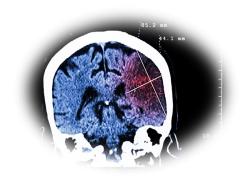© 2025 MJH Life Sciences™ , Patient Care Online – Primary Care News and Clinical Resources. All rights reserved.
Caffeinated Coffee Linked to Lower Atrial Fibrillation Recurrence in First-of-its-Kind Randomized Clinical Trial
New research reveals that caffeinated coffee significantly reduces the recurrence of atrial fibrillation, challenging long-held medical advice.
A new randomized clinical trial has found that patients with atrial fibrillation (AF) who consumed caffeinated coffee after undergoing cardioversion—an electrical shock to restore normal heart rhythm—had a significantly lower risk of their arrhythmia recurring compared to those who abstained from caffeine. The study, named the DECAF trial and published in JAMA on November 9, 2025, found that coffee consumption was associated with a 39% lower hazard of AF or atrial flutter recurrence. The research was a collaborative effort between UC San Francisco and the University of Adelaide.1
A Reversal of Decades-Old Advice
For decades, conventional wisdom held that caffeinated coffee was proarrhythmic, and physicians routinely advised AF patients to avoid it. These new findings directly challenge that long-held belief. “The results were astounding,” first author Christopher X. Wong, PhD, of UCSF and the University of Adelaide, said in a press release. “Doctors have always recommended that patients with problematic A-Fib minimize their coffee intake, but this trial suggests that coffee is not only safe but likely to be protective.”2
The study reported an absolute arrhythmia recurrence rate of 47% in the group that consumed coffee, compared to a 64% recurrence rate in the group that abstained from caffeine. This significant protective effect raises the question of how coffee might be helping to maintain a normal heart rhythm.1
Unpacking the Protective Effect: How Might Coffee Help?
Researchers suggest several potential mechanisms for coffee's protective effects. “Coffee increases physical activity which is known to reduce atrial fibrillation,” senior author Gregory M. Marcus, MD, MAS, an electrophysiologist at UCSF Health, noted in a press release. “Caffeine is also a diuretic, which could potentially reduce blood pressure and in turn lessen A-Fib risk. Several other ingredients in coffee also have anti-inflammatory properties that could have positive effects.”2
Beyond the behavioral changes, the researchers speculated on coffee's biological effects. Caffeine is known to block adenosine receptors, and since adenosine can facilitate AF, this blocking action may have an antiarrhythmic effect. Coffee also possesses anti-inflammatory properties, which could be protective, as systemic inflammation is a known risk factor for AF.
The DECAF Trial
Study Methodology
- Trial Design: A prospective, open-label, randomized clinical trial conducted at 5 hospitals in the US, Canada, and Australia.
- Participants: 200 coffee-drinking adults with persistent AF (or atrial flutter with a history of AF) who were scheduled for electrical cardioversion.
- Intervention: Patients were randomized 1:1 to either consume at least one cup of caffeinated coffee daily or to completely abstain from coffee and caffeine-containing products for six months.
- Primary Endpoint: The primary outcome measured was the clinically detected recurrence of AF or atrial flutter over the 6-month follow-up period.
Key Findings
- Primary Endpoint: Coffee consumption was associated with a 39% lower hazard of AF or atrial flutter recurrence (Hazard Ratio, 0.61 [95% CI, 0.42-0.89]; P = .01).
- AF Recurrence: A comparable benefit was observed for the recurrence of AF alone (HR, 0.62 [95% CI, 0.43-0.91]; P = .01).
- Adverse Events: The study found no significant difference in adverse events between the two groups.
Context, Limitations, and Conclusion
Atrial fibrillation is the most common heart rhythm disorder, diagnosed in more than 10.5 million in the US alone. While the DECAF trial's findings are significant, the authors noted several limitations. The trial was open-label (not blinded), had a modest sample size, and may have underrepresented a key patient group, as many individuals who believed coffee was a trigger for their own AF were unwilling to participate in a trial where they might be asked to consume it.
Despite these limitations, the study's conclusion offers a new perspective for patients and clinicians. The authors state that based on these findings, consumption of coffee may be reasonably considered for patients with atrial fibrillation.
References:
- Wong CX, Cheung CC, Montenegro G, et al. Caffeinated Coffee Consumption or Abstinence to Reduce Atrial Fibrillation: The DECAF Randomized Clinical Trial. JAMA. Published online November 9, 2025. doi:10.1001/jama.2025.21056



